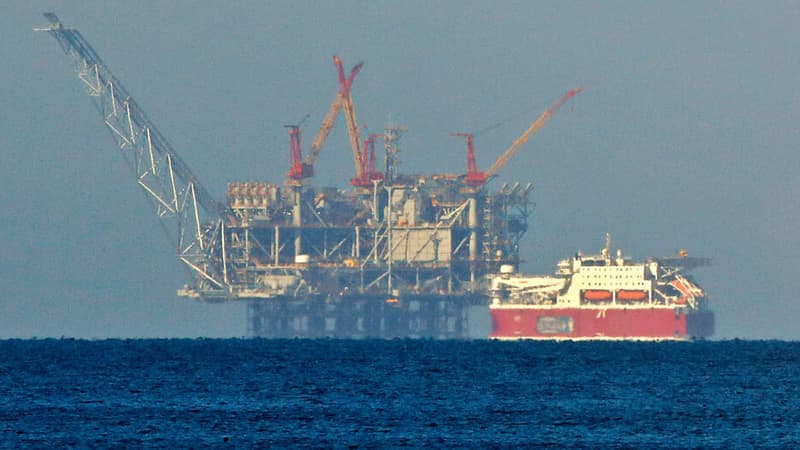Qatar entered on Sunday as a partner of the French TotalEnergies and the Italian Eni in the consortium that must begin the exploration of hydrocarbons in a maritime block off southern Lebanon, on the border with Israel. A potential gas discovery would be a breath of hope for Lebanon amid economic collapse, but experts believe the process could take years.
Lebanon and Israel, still in a state of war, signed an agreement in October 2022 delimiting their maritime border after lengthy US mediation. It allows Lebanon to begin exploration in the potential Cana field, part of which is in Israeli territorial waters, in exchange for payment of compensation to the Jewish state. Having withdrawn the Russian Novatek in 2022 from the consortium for the development of this field, Qatar will now have 30% of the shares, against 35% of Total and 35% of Eni.
“Qatar’s entry into the consortium has a particularly political significance”
The agreement was signed at a ceremony in Beirut between Lebanese Energy Minister Walid Fayad, his Qatari counterpart and Qatar Energy CEO Saad al-Kaabi, as well as TotalEnergies CEO Patrick Pouyanné and D’Eni Claudio Barefoot. During a press conference, the Qatari minister considered that his country’s entry into the consortium was “an opportunity to support Lebanon’s development in these difficult circumstances.”
“Qatar’s entry into the consortium has a mainly political significance,” says energy expert Naji Abi Aad. He explains that this involvement of the gas-rich emirate “brings a political guarantee”, in particular because of Qatar’s ties with Western countries and even with Israel. Lebanon is ostracized by several wealthy Gulf countries, including Saudi Arabia, due to pro-Iranian Hezbollah’s dominant influence in political life.
exploration results expected in one year
Lebanon has divided the exclusive economic zone at sea into ten blocks and Block 9, where Cana is located, was part of the disputed area with Israel before the October deal. The consortium is also in charge of developing block 4, off the coast of central Lebanon, where exploration has not led to the discovery of commercial quantities. The general director of Total explained during the press conference that the exploration process for Cana must be completed “within the next 12 months.”
In November TotalEnergies and Italian hydrocarbons giant Eni signed a framework agreement with Israel to start prospecting. The consortium will now be able to explore an “already identified prospect that could extend to both Block 9 and Israeli waters south of the recently established maritime border,” according to the French group.
Israel has already begun extracting and delivering gas.
The potential Cana deposit has been highlighted by seismic analysis of the rock and will need to be confirmed by an exploration campaign. Ultimately, the company that operates Cana will pay Israel “for its rights to any deposits,” according to the text of the agreement, with the Israeli government estimating its stake at around 17%. Analysts agree, however, that it will take several years for Beirut to enter the exploitation phase in the event of a commercial discovery.
Israel, for its part, has already begun extracting gas and is delivering it to its Jordanian and Egyptian neighbors. Last June it signed an agreement for the liquefaction of its gas in Egypt with a view to sending it to Europe by ship.
Source: BFM TV


